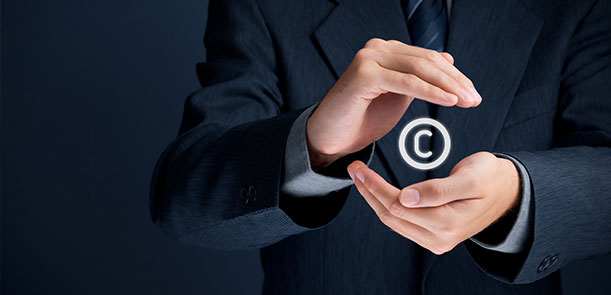The software industry thrives on innovation. Developers are constantly moving forward, pushing the boundaries of what we think is possible. But despite the creativity displayed by developers all over the world, there are a few bad apples that present a risk to everyone. So how do we protect ourselves? In this post we look at the legal framework around source code and whether it can be legally called intellectual property (IP). We also look at whether your business is truly protected by intellectual property law alone…
Is source code intellectual property?
In copyright legislation around the world, source code is considered the intellectual property of the creator. Source code is protected in the same way as a “literary work”, which means it is copyrightable from the moment that the first line of code is created. This gives software companies some legal protections around their code.
However, software can differ in many ways to standard copyrighted intellectual property. This means that software development companies have to use a variety of other legal methods to ensure that their ideas and creative work are not compromised.
Copyrighting your work can prove to be problematic for a variety of reasons. For a start you may have to publish details of your work in copyright documentation, which can give competitors an edge. This is why software and tech companies generally use patents to protect their initial idea and trade secret law to protect the sensitive aspects of it. Copyright frameworks exist to protect the expression of that idea and trade secret legislation exists to protect a companies’ competitive advantage in the marketplace.
What is copyright?
Copyright is the exclusive legal right of a creator to reproduce, publish or sell their own original created work. For software companies their created work is their source code.
Copyright law does not give full protection for your product or idea. It merely covers the form of “material expression” of that idea. Not the ideas, concepts and techniques used to create the work. The work must be fixed in a tangible form for it to receive copyright protection.
For artists and novelists this makes things straightforward as their creations are tangibly fixed on paper or canvas when they are created. Software companies do not have that luxury, so other legal frameworks within intellectual property law are used to protect their creations.
The plus side is that copyright law is generally consistent around the world, though the specific laws and practices can vary.
What is a patent?
A patent is granted to an inventor or creator by a government agency, giving them the right to stop others, usually for a limited time period, from making, using or selling the invention.
For software companies this can be a bit of a minefield, as a lot of software duplicates the end function of other software that might be available on the market. For example, you may have created an iPhone app that helps people organize their time but there are other apps available on the market that can do the same thing. But a patent could help you if there was a feature of your created app that worked very differently from anything else on the market. So, you would apply for a patent for that component of your application.
Unfortunately, patents can be expensive to obtain. They can also take a long time to be granted. During that time your competitors may find a way to work around your patent or launch a very similar product. For most small to medium sized companies they are not, by themselves, a suitable form of IP protection.
However, a lot of big companies use patent law to protect themselves not just for products they have actively in development or available on the market, but for things that they may create in the future. There have also been numerous instances of big companies suing each other for violations of patent law. A famous example is Apple Vs Samsung. Apple and Samsung have both sued each other at various points and in various locations around the world. At the time of writing Samsung has had to pay Apple $539 million for patent infringements, which shows that violating patent law can be very expensive!
What is a trade secret and what is trade secret law?
Trade secret law is a specific part of intellectual property legislation that protects vital proprietary information against unauthorized use by other parties. A good example of a trade secret is Google’s ranking algorithm. No one outside Google precisely knows what the algorithm actually is and Google only patent certain components of it, like PageRank.
Companies obviously cannot register their trade secrets with government agencies, like they would for copyrights, patents and trademarks. The only way to ensure that a trade secret remains a secret is to keep the information strictly confidential. Though if your company has employees, this is usually impossible.
Employees tend to be the weak link in the secrecy chain. Competitors may even raid your workforce in an effort to gain knowledge of your trade secrets. Though most people would not divulge such knowledge to a new employer, a business cannot be certain of that. This is why companies insert non-disclosure agreements into the contracts of employees who may come into contact with a trade secret. However, this does not mean that violations do not occur. Trade secrets litigation occurs regularly, in many industries. With companies often suing each other when top staff move from one business to another.
Trade secret law can help protect the unique aspects of your creation and stop your competitors from duplicating your product. But it can be costly for a company if they pursue litigation against an individual or a competitor.
How to protect your source code intellectual property (IP)
“…intellectual property attacks are one of the most lethal economic crimes that can befall an organization. The theft of critical IP—trade secrets, product information, negotiating strategies and the like—can be called “extinction level events.”
- PricewaterhouseCoopers Patent Litigation Study, 2016
Aside from the standard legal frameworks described above there are other, perhaps more effective, ways you can protect your source code intellectual property. This is vital as bad actors and rogue employees rarely care about legal implications. So, while your company may have a legal recourse to pursue an intellectual property thief, this is time consuming and potentially very costly. If things go really wrong, an intellectual property violation could destroy your business.
The content of this blog is not intended to constitute legal advice for any company or entity.



Share: